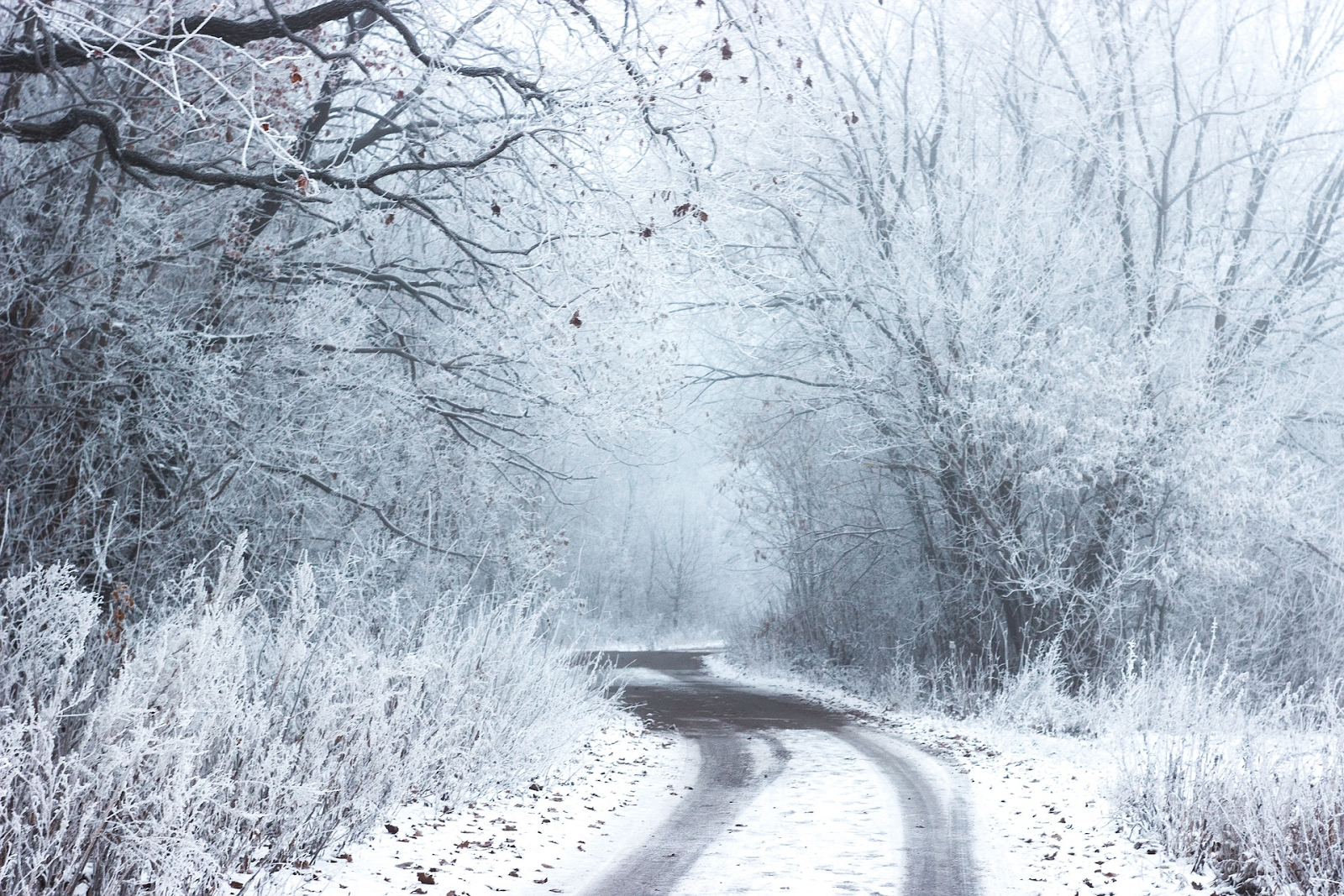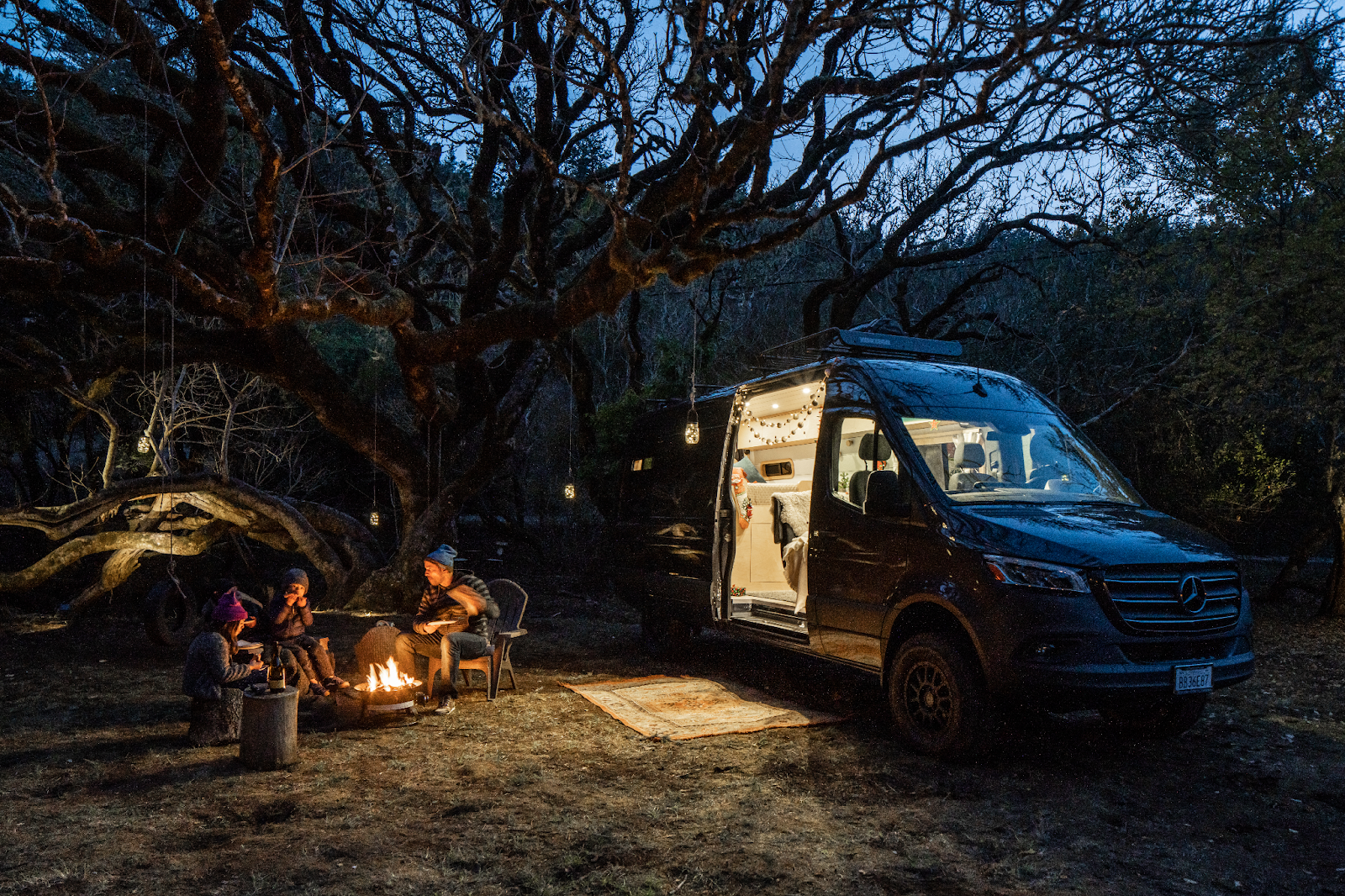How to Winterize a Sprinter Camper Van

Photo by Pixabay
Winterizing a Sprinter conversion van properly can help to ensure the longevity and continued safety of its components. Winterizing your camper van is an important behind-the-scenes aspect of the #vanlife lifestyle! Keep reading to learn about important steps you should take to ensure that your van is ready for winter.

Photo by Muse & Co. Outdoors
Protect Your Water System
Your van’s water system is the top priority when it comes to preparing for winter. If you live in a climate that sees freezing temperatures, you need to take extra steps to protect the water system from damage. But even in more mild climates like the San Francisco Bay Area, you should take basic steps to winterize your camper van’s water system if you plan on storing the camper for longer periods of time.
To protect your Sprinter van’s water system during storage, you should:
- Completely drain the fresh water tank.
- Drain gray/black water tanks.
- Ensure water lines are clear by turning on your van’s water pump and opening all faucets.
- Drain any external water tanks, such as roof-mounted Road Showers.
In colder climates, take these extra steps to protect your water system’s components:
- Add a gallon or so of non-toxic RV antifreeze to your van’s water tank.
- Turn on the water pump to fill the pump and water lines with antifreeze.
- Turn off water pump and open faucets to allow for pressure release.
Follow the steps above to ensure that your van’s water system components are protected from freeze damage and/or build-up of algae and bacteria. When you take your van out of winter storage, it is a good idea to completely flush and clean the system with a small amount of bleach to ensure that your tapwater has no residual plastic or antifreeze taste.
Winterize Your Batteries
By taking the proper steps before storing your van for long periods of time, you can protect your auxiliary batteries from damage and extend their overall lifespan. Different battery types require different storage techniques. For example, AGM and lead acid batteries require the use of a trickle charger while in storage.
In this guide, we will focus on lithium batteries. Lithium is the best type of battery to use in a Sprinter van, and all Muse & Co. Outdoors vans come equipped with four top-of-the-line 100 amp-hour lithium batteries. Lithium batteries require very little maintenance, but you can take some simple steps to protect them before storing your van for long periods of time.
The most critical step to winterizing lithium batteries is to disconnect them from any parasitic loads. Before disconnecting the batteries, make sure they are fully charged. Many Sprinter van electrical systems will have an easily accessible battery disconnect switch. Others may have batteries that have an integrated switch with an option for ‘storage mode’, which accomplishes the same thing as a remote disconnect and simply isolates the batteries from its loads.
If you are storing the van for long periods of time in your driveway, you can use a trickle charger connected to an AC outlet to maintain the battery’s charge – just remember that your lithium batteries will not accept a charge at freezing temperatures. Trickle chargers are not required for lithium batteries and not necessary, so long as you follow the steps above and you are only storing the van for a few weeks or months.
Use a Fuel Additive
When storing a camper van for a period of months, you need to think about the vehicle itself as well as the conversion. One basic but important step to take when storing any vehicle for a long time is to add a fuel stabilizer. Fuel stabilizers protect your vehicle against potential damage that can occur when you leave fuel in your tank for long periods of time.
Keep in mind that many Mercedes Sprinters are diesel vehicles, and diesel has different requirements than gasoline when it comes to fuel additives and storage. In general, you can safely store high-quality diesel fuel for up to 6 months–so your Sprinter van should be fine during winter without any additives.
If your van is gasoline-powered, adding an applicable fuel additive to its tank before storing it for several months is a good idea. It will ensure protection against damage to engine components that can occur if you do not use an additive.
Other Storage Tips
There are a few more basic tips for winterizing your Sprinter van that are applicable to the storage of most vehicles. We recommend that you do the following when storing a van for months at a time:
- Use a cover: Covering your Sprinter van with a tarp or custom cover will help to protect all the seals and paint from weathering that occurs as a result of exposure to the elements. If at all possible, parking your van in a garage or carport is the best option.
- Protect against pests: Rodents and other animals would love to house-sit for you while your van is not in use. To protect against pest invasion, make sure to remove all food and food smells from your van before storage. Also, check on your van periodically throughout the winter to make sure no rodents or other animals have made nests in your engine compartment or elsewhere.
- Open your fridge: Your fridge seals shut, and it is nearly impossible to clean it well enough to protect against mold and odor build-up if you leave it shut. We recommend leaving the door propped open while the van is in storage to allow for air to circulate.
Winterizing your Sprinter Camper van is quick and easy, but these simple steps go a long way towards protecting your investment and ensuring the longevity of your beloved van. If you are in the market for a high-end Sprinter van conversion, be sure to check out our models. We are the West Coast’s premier Sprinter van builder, offering beautiful handcrafted builds with top-of-the-line components.

Very concise and easier to follow even than my manual for all this! Thank You!